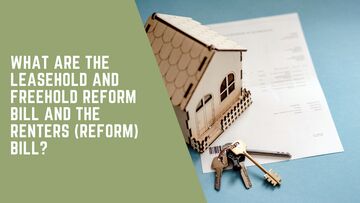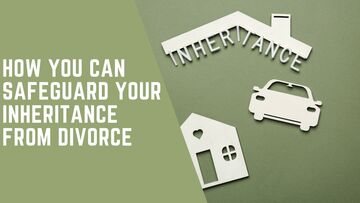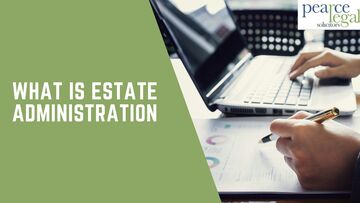Things to consider when making a will
Wills| 19.07.2021
A Will is a legal document in which you, the Testator, specify who is going to administer your estate when you die and how you wish for it to be distributed. There are certain things that you need to consider. Your estate may consist of money and property and may include large assets such as a house, but also personal possessions such as collectables or family heirlooms. The individual(s) you appoint to deal with probate and administer the estate is called the Executors.
Writing a Will is your way of controlling what happens to the assets in your estate after your death, making sure that your family members and loved ones are looked after, that your wishes are respected and allowing you to decide who you would like to inherit from your estate. These people will be your beneficiaries.
Without a valid Will in place, your estate would be subject to the Rules of Intestacy which set out how the estate should be distributed, which might not be the way you would choose.
You may wish to use your Will to appoint a guardian for your child or children and to set out your wishes for your funeral. For example, you can specify whether you want to be cremated or buried.
You will also need to consider Inheritance tax - see the Inheritance Tax heading below for more information.
After you have decided to write a Will the next step is to examine what you hope to achieve by creating one. Anyone above the age of 18 with mental capacity can make a Will. The following are the most essential topics to think about while writing a Will:-
Plan it out - What are your assets?
The first consideration of the process of writing your Will is to make a list of all of your assets and their values. Your estate may contain:-
- Property or assets owned individually or jointly;
- Trusted assets such as life insurance plans or pension advantages;
- Physical items such as cars and jewellery;
- Bank accounts, savings, bonds, shares and ISAs;
- Liabilities and debts
This exercise is beneficial in advance of a meeting with your Solicitor because some financial preparation is needed in the process of writing the Will. This will also allow your Solicitor to advise on any taxation matters.
Inheritance tax
Inheritance tax is the tax on the estate of someone who has died. It can be a complex issue and it is always best to seek advice from a professional with regard to tax affairs.
Inheritance tax is not usually payable if either:
- The total value of your estate is below the £325,000 threshold; or
- You leave everything above the £325,000 threshold to your spouse or civil partner, a charity or a community amateur sports club
There are ways of increasing your Inheritance tax threshold and adding to your partner's threshold after you die. Again, it is best to seek professional advice on how to do this.
When writing your Will you will need to provide your Solicitor with details of your assets so they can then outline and explain any Inheritance Tax issues and/or liabilities. You can also discuss the tax planning opportunities that may be available to you.
Who Will Be Your Beneficiaries?
Your Will sets out who you want to benefit from your estate. When you leave an estate to a number of beneficiaries, your Will must specify how the assets will be distributed. Allocating precise amounts of money, a property, or a proportion of the estate are examples of this. Your Solicitor will be able to advise you on various methods to split assets and explain how you can provide for future generations.
You can leave money or property to your children, other family members, loved ones and to charity.
You need to consider if a possible beneficiary has particular needs owing to their age, vulnerability or other conditions.
Who do you want to deal with your estate?
The Executors you name in your Will are responsible for administering your estate; it is their responsibility to follow the directions and wishes set out in the Will. An Executor can be anyone you choose but must be a person who is capable to act for you in this position. You may decide you want to appoint a family member, friend or solicitor.
You should carefully consider who you choose for this position; an Executor must be trustworthy and dependable in order to ensure that your wishes are carried out effectively. You may require independent or professional Executors if your estate is anticipated to be challenging or contested.
Changes in circumstances
If you have experienced a change in your circumstances, family or finances, it is important to ensure that your Will is up to date. For example, if you are getting married or going through the divorce process. If your Will expressly says otherwise, marriage and remarriage will immediately invalidate your Will. A divorce does not necessarily cancel your Will, but it might change the provisions of any existing Will
Proper signing and witnessing
Your Will isn't valid unless it's signed and witnessed correctly. A Will that hasn't been properly written, signed and witnessed might be declared void or challenged. When you and your witnesses sign your Will it becomes a legal document.
Review your Will
It's critical to review your Will on a regular basis to ensure that it still reflects your present desires. You may have bought a second property or inherited some money yourself. If any of your beneficiaries, Executors, Trustees, or Guardians experience a substantial change in circumstances, it is especially essential to re-examine your Will. Be aware that a change in your financial circumstances may give rise to an Inheritance Tax liability so this is something that is important to consider.
Finding the right legal professional
If you have any further questions regarding things to consider when making a Will or wish to make an appointment with one of our qualified Solicitors to write your Will then please don't hesitate to get in contact with our team at Pearcelegal Solicitors. We can provide the right advice tailored to your specific circumstances and can also act for you Executors in gaining a Grant of Probate on your death and distributing your estate appropriately.
Expert advice for you Book a free consultation
The team at Pearcelegal will be delighted to discuss your legal matters and give you a no-obligation quote.



